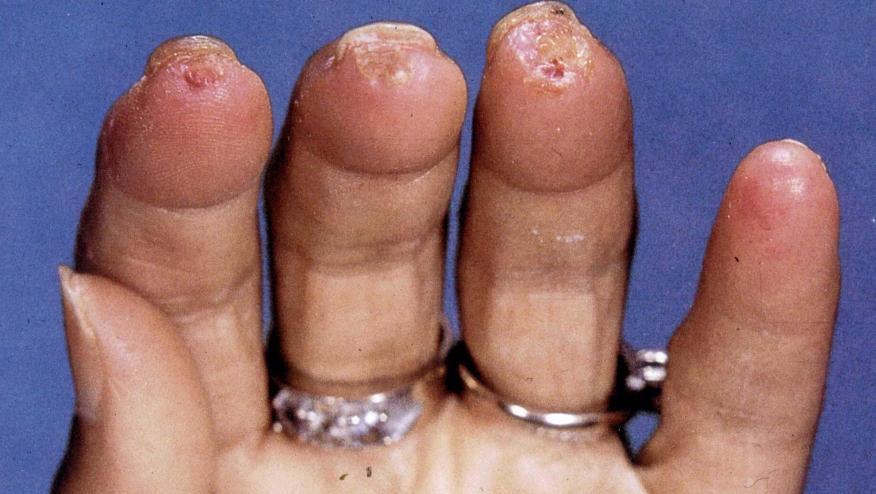Blacks with Systemic Sclerosis May Have More Severe Disease Save

New research presented this week at ACR Convergence, the American College of Rheumatology’s annual meeting, shows that Black people living with systemic sclerosis may have more severe disease and worse prognosis than patients in other racial or ethnic groups, and these worrying disparities may be driven by several socioeconomic factors (Abstract #1854). This poster will be presented Tuesday morning, November 9, 2021 in the Clinical Poster III (1836–1861) section on Systemic Sclerosis & Related Disorders.
Systemic sclerosis, also known as scleroderma, is a relatively rare autoimmune disease affecting the skin and other organs of the body. The immune system causes inflammation and other abnormalities in these tissues. People with systemic sclerosis often experience thickening and tightening of the skin and inflammation and scarring of many body parts, leading to problems in the lungs, kidneys, heart, intestinal system and other areas of the body.
Systemic sclerosis patients who are Black seem to experience poorer outcomes more often than people in other racial and ethnic groups. To find out more and identify potential drivers of these disparities, researchers compared disease characteristics and outcomes between Black and non-Black patients in a large registry over a 16-year period. They particularly looked at possible gender and social factors that may play a role in health.
“We decided to undertake this project because it had previously been shown Black patients experience other autoimmune diseases such as myasthenia gravis (a chronic autoimmune disorder in which antibodies destroy the communication between nerves and muscle) and systemic lupus erythematosus (SLE) differently than non-Black patients, and they typically have more severe clinical characteristics,” says Sarah M. Compton, MD, a rheumatologist at Medical University of South Carolina and the study’s co-author. “We felt this project was important to explore because it will alert the clinician to be more aware of worsened clinical characteristics in Black patients. Earlier and more severe disease characteristics may mean sooner follow-up and more diagnostic testing to screen earlier for processes like interstitial lung disease.”
Researchers identified 372 patients with systemic sclerosis who were 79.6% female and 37.9% Black. They found that Black patients developed the condition at a significantly younger age than those in other racial or ethnic groups, and females tended to develop the disease at a younger age than males.
When they compared disease outcomes for diffuse cutaneous systemic sclerosis, renal crisis, interstitial lung disease and restrictive lung disease, all serious manifestations, they found that Black patients had a statistically significant increased risk for all but renal crisis compared to non-Black patients. When they compared outcomes when controlling for disease duration, theyfound that increased risk for mortality, diffuse cutaneous disease, pulmonary hypertension and interstitial lung disease remained higher for Black patients compared to non-Black patients.
When looking at whether there were possible social determinants of worse disease outcomes, the researchers found that 43.75% of Black patients had private insurance compared to 66.83% of non-Black patients. They also found that 96.39% of non-Black patients had graduated from high school, while 89.72% of Black patients had their high school diploma. And males had significantly higher percentages of diffuse lung disease, dysphagia and restrictive lung disease compared to females overall.
“Interestingly, even when controlling for disease duration, outcomes like mortality, pulmonary hypertension, interstitial lung disease, and diffuse disease continued to be significant. This means that being Black was associated with worsened outcomes no matter how long the patient had systemic sclerosis. This may affect how clinicians care for their Black patients with systemic sclerosis, as well as possibly encouraging them to involve other specialists earlier,” says Dr. Compton.
Compton’s group plans to interview patients to find out more about the social determinants affecting their health.
“We hope it will elucidate some answers as to why Black patients have worsened disease characteristics, so interventions can be enacted to improve patient outcomes,” stated Dr. Compton.









If you are a health practitioner, you may Login/Register to comment.
Due to the nature of these comment forums, only health practitioners are allowed to comment at this time.